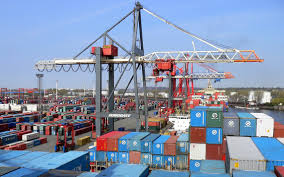记忆方法
1. 汽车走了,带走了我们的货物。
卸下的船货,汽车(car)已拉走(go)
2. cargo 【car+go,货物装好车就走】 货物
卸下的船货,汽车(car)已拉走(go)
2. cargo 【car+go,货物装好车就走】 货物
中文词源
cargo 货物
来自拉丁词carricare, 装载,词源同car, charge.
英语词源
- cargo
-
cargo: see charge
- cargo (n.)
- 1650s, "freight loaded on a ship," from Spanish cargo "burden," from cargar "to load, impose taxes," from Late Latin carricare "to load on a cart" (see charge (v.)). South Pacific cargo cult is from 1949. Cargo pants attested from 1977.
权威例句
- 1. Fire may have breached the cargo tanks and set the oil ablaze.
- 大火当时有可能把货船上的油罐烧漏了,从而引燃原油。
- 2. A fishing vessel and a cargo ship collided in rough seas.
- 一艘捕鱼船和一艘货船在波涛汹涌的海上相撞了。
- 3. He loaded his vessel with another cargo and set sail.
- 他给自己的船装上另一批货后便启航了。
- 4. Ferries are very powerful and manoeuvrable compared to cargo ships.
- 与货船相比,渡船马力大而且易操纵。
- 5. The cargo was due to be offloaded in Singapore three days later.
- 货物定于3天后在新加坡卸载。
